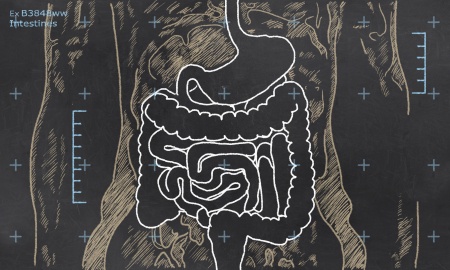People with Crohn's disease and ulcerative colitis are being invited to take part in a study to better understand the diseases.
Researchers want to shed light on the everyday factors that may influence flare-ups and probe how changes in diet and lifestyle might help sufferers.
The study will collect information from 1500 people with either of the debilitating bowel conditions.
Participants will complete online questionnaires about their eating, exercise and sleep habits, and also monitor feelings of stress and anxiety.
They are also being asked to provide mouth swabs and stool samples so that researchers can analyse their DNA and examine bacteria living in their gut.
Those taking part will be asked to provide monthly updates for two years, detailing how well their symptoms are being controlled and any significant life events using a secure website.
Experts will compare information from those who experience flare-ups in the course of the study to those who do not. They hope to pinpoint everyday factors that could contribute to the onset of symptoms.
Crohn’s disease and ulcerative colitis are caused by inflammation in the bowel. Around one in 200 people in the UK are living with the diseases and young people are particularly affected.
Symptoms include severe abdominal cramps, diarrhoea, nausea and tiredness. They can be extreme enough to affect all aspects of day to day life.
Current treatments are focused on alleviating the symptoms but patient responses vary. In many cases, patients need surgery to remove a section of their bowel only to suffer a relapse. There is no cure.
The PREdiCCt study, led by the University of Edinburgh and NHS Lothian, is recruiting patients from across Scotland and England.
Researchers from the University of Aberdeen are providing expertise in diet and nutrition, along with analysis of participants’ gut bacteria.
DNA sequencing of the participants’ entire genetic make-up will be carried out at the Wellcome Trust Sanger Institute.
Funding is being provided by Cure Crohn’s Colitis, Crohn’s and Colitis in Childhood and the Scottish Government’s Chief Scientist Office.
Health Secretary Shona Robison said: "The Scottish Government is pleased to be supporting this study, along with the charities Cure Crohn’s and Colitis and Crohn’s & Colitis in Childhood, to help understand what may trigger relapses in Crohn’s Disease and Ulcerative Colitis and improve the lives of people with these debilitating conditions.”
Chief Investigator Dr Charlie Lees, Senior Lecturer at the University of Edinburgh and Consultant Gastroenterologist at Edinburgh’s Western General Hospital, said: “Patients often ask us whether there are any changes to their diet or lifestyle that would help to better manage their symptoms. We hope the findings from this study will give us the evidence base needed to provide better advice for those living with these debilitating diseases.”


